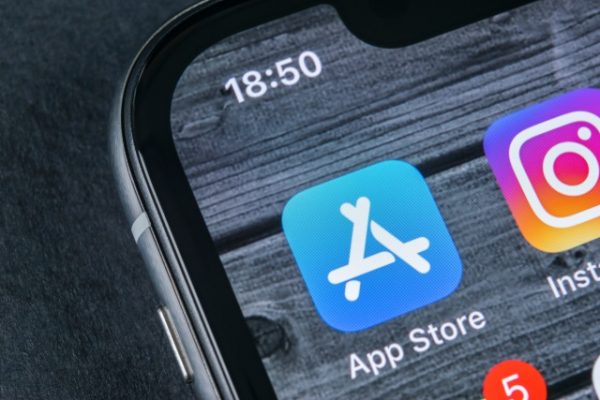Big changes coming to the App Store later this year

2021 has proven itself to be a big year for mobile apps, and for iOS the approaching changes are even more substantial. A long-awaited update is coming to the App Store, namely the introduction of an A/B testing tool that allows developers to directly test different treatments of their product page on App Store Connect.
Although A/B testing has been available for developers on the Google Play Store through Google Play Experiments since May of 2015, Apple has continuously fallen short in offering a similar feature that allows for convenient testing. Instead, developers on the iOS App Store rely on deploying new builds to compare metrics before and after, utilizing third-party testing, or using conversion optimization via Apple Search Ads creative sets. This is all changing with the introduction of Custom Product Pages and Product Page Optimization.
Custom Product Pages
One of the challenges when optimizing apps for specific audiences is creating a product page that can speak to people’s unique interests, backgrounds, and user behavior. These key differences in preference can potentially prevent developers from reaching users who may be interested in their app but are not included in the targeted keywords and metadata. Apple has announced the launch of Custom Product Pages, a feature that allows developers to create up to 35 custom product pages to effectively target a diverse audience.
Custom Product Pages can help to emphasize different app features and content for different users. By allowing each custom product page to include a different set of app preview videos, screenshots, and promotional text, developers can ensure that their sought after demographic is spoken to. Additionally, Apple has revealed that each page will be fully localizable and shareable using its own unique URL. This means that developers can share these unique URLs in ideal locations where their targeted audience may be more prevalent.
The metrics and data for all Custom Product Pages will be visible in App Analytics, this includes impressions, downloads, and conversion rate. By analyzing this data, developers can understand which custom page is most effective at driving new users to download their app. App Analytics also offers the opportunity to continue monitoring what happens after users have downloaded the app from the App Store by including retention data and average proceeds per paying user.
Product Page Optimization
Beyond creating Custom Product Pages, Apple’s new Product Page Optimization feature includes a highly anticipated A/B testing tool. With this new feature, developers can set up and test three additional product pages alongside their default product page. By doing so, it will be easier to determine whether a treatment or the default page resonates best with users and drives more conversion. These three test pages can contain a variety of treatments to creative assets, namely the app icon, preview videos, or screenshots.
When setting up testing, developers can choose the percentage of their audience that will see one of their treatments on the App Store. Moreover, Apple has confirmed that tests will be able to run in specific localizations rather than all territories and hereby impact every live product page. This offers developers the flexibility to focus test treatments depending on their relevance in available territories. Although each test can have up to three treatments, it is recommended to limit the number of assets changed to one test per cycle. This way, any changes in metrics are easily identifiable and the most effective variation can be isolated.
In-App Events
Apart from Custom Product Pages and Product Page Optimization, Apple has also introduced In-App Events. In-App Events will enable users to view upcoming timely events within the iOS App Store. This addition to the App Store provides developers with a new means to connect with their users by planning scheduled events that drive user re-engagement. In-App Events represent an opportunity to promote new user conversion and improve overall retention. Useful performance metrics on these events are available in App Analytics on App Store Connect.
In-App Events will be visible for users in search results, on an app’s product page, and on the editorial tabs curated by Apple. These will show up as event cards that display the event’s name, its short description, and a time indicator that automatically updates as the event nears and once it begins. For users who have already installed the app, tapping open on the event card can direct users straight into the event. Tapping the event card itself will open additional information and event details in the form of a longer text description and a larger media asset.
To build anticipation, events can be promoted up to two weeks prior and include an option for users to receive a notification when the event begins. Active users will be launched directly into the event, whilst users without the app downloaded will be directed to the events details page. To help boost unique and exciting events, Apple’s Editorial Team will be uploading a curated list of apps on the Today, Games, and Apps tab. These recommendations will comprise apps specific to a user’s interests and install history, as well as popular events on the App Store.
Overall
Apple has announced major updates that will impact developers’ ability to acquire users through A/B testing, making more fine-tuned product pages for external marketing, and promote upcoming in-app events. These new features and abilities will greatly aid developers in optimizing their apps for iOS by utilizing A/B testing and improving user retention and acquisition. With these changes in mind, it is important to prepare in advance and ensure that your apps are ready to take advantage of these updates. Therefore, we recommend taking the time to reassess your app. Have a clear objective in mind for your product pages, examine your app’s features and content, and begin preparing your textual metadata and visual assets. Finally, consider what type of In-App Events could help promote your app and convince users to re-engage.
Image credit: BigTunaOnline / Shutterstock

Dave Bell is the Co-Founder and Chief Executive Officer of Gummicube. In this role, Dave is responsible for overseeing the business strategy for Gummicube, driving growth and market development. Dave is a pioneer of the mobile entertainment industry with more than 15 years of experience in publishing, marketing and distributing mobile apps and games across carrier, direct-to-consumer and app store channels.
